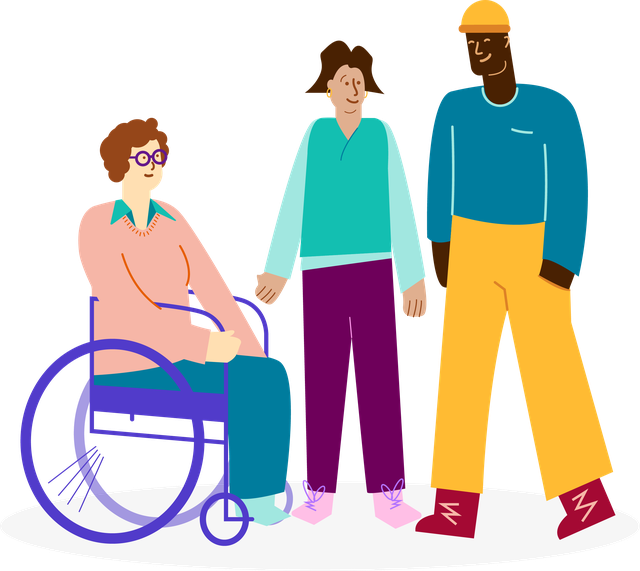Findings from our focus group
In October 2024, Homeless Link facilitated a focus group with a range of individuals from local authorities and voluntary sector organisations across England to discuss the topic of offering tents to people experiencing homelessness. The aim of the focus group was to gain a better understanding of the range of views across the sector.
The focus group was attended by 20 individuals, 8 from Local Authorities, and 12 from voluntary sector organisations, with a mix of rural and urban areas. A poll taken at the beginning of the session revealed that 80% of attendees said that their organisation didn’t give out tents. Additionally, almost all attendees stated that their organisations didn’t have a policy or procedure on providing tents.
This webpage collates key discussion points and opinions shared within the focus group.
Reasons for giving out tents
For some attendees whose organisations did give out tents, this was often due to there being no accommodation options available in the area, and therefore, giving out a tent, and often a sleeping bag, was seen as ‘better than nothing’, with a tent being the difference between someone sleeping rough in the pouring rain, or having some form of shelter. Some organisations had funding to cover the costs of providing tents, but it was noted that this provision wouldn’t be needed if there were more suitable, affordable housing options. Attendees discussed the conflict faced between providing some sort of shelter, especially in exposed rural environments, versus the potential harm to the individual and community (due to encampments).
One organisation (a day centre) noted that they had a group of women sleeping in tents behind the centre. The women shared that they felt safer in tents, and in a group, due to having a sense of community. They also had access to essential services during the day at the centre. It was agreed that is important to talk to people who are sleeping in tents to understand their perspective. For some people having a tent was seen as safer, even if this is perceived safety, with the added benefit of having an element of privacy.
The group discussed some possible advantages of providing tents to people experiencing homelessness:
-

Weather
Enables someone to keep dry and warm, with some physical protection against adverse weather conditions -

Outreach
Outreach teams can more likely locate someone who has pitched a tent, and therefore provide support to move them away from rough sleeping. Tents can be a catalyst for engaging with support. -

Trust
Tents can help to build trust and validate a person’s experience: by acknowledging that they are homeless and there are no accommodation options but being able to provide something to help them in that moment. -

Control and autonomy
Being able to zip up a tent door can provide an element of control and autonomy for the individual, as well as a sense of safety, compared to being out in the open. Tents also provide storage for belongings which can be a huge challenge for people sleeping rough. -

Relationships
Tents can enable couples to maintain their relationship when no joint accommodation options are available.
The group also discussed how tents provide a visual reminder of the failures of central and local government to tackle homelessness and can make local councils act by keeping them accountable for finding accommodation. It was felt that there would continue to be people sleeping in tents until the housing crisis is solved.
Reasons for not giving out tents
A key emerging theme was the issue of safety for individuals who sleep in tents.
-

Safety and risk
Several participants shared incidents of attacks, including assaults, kidnappings, suicides, and overdoses, particularly involving women. Tents can create a false sense of security, as concealment often increases risks, including arson and fire hazards in extreme heat. However, it was emphasized that these risks are present for people sleeping rough regardless of their shelter type, including in hostels, HMOs, and derelict buildings. While tents may highlight these dangers, they are not the sole cause. -

Outreach not opening tents
It was discussed that not all outreach services open tents but would always approach someone in a sleeping bag. This included if they approached the tent and did not get a response. One area had written a protocol on opening tents safely to check people’s welfare. -

Encampments
A key challenge was the emergence of encampments after tents were distributed, posing risks to both occupants and the local community. Encampments were linked to increased antisocial behaviour and issues like abandoned or burned tents affecting street cleaning. However, they also provided a sense of community for some, including those who refused accommodation options. Public perceptions of encampments were noted as damaging, with assumptions that occupants chose to stay there, often ignoring the broader context. Some services faced criticism for distributing tents and allegedly encouraging outdoor living. -

SWEP
It was suggested that tents should not be offered to anyone who has an accommodation option or during a SWEP activation when emergency accommodation should be provided. It was discussed how it is difficult to have a hard and fast rule; every situation should be considered on its own merit.
Partnership working
A question was asked about how participants navigated different approaches to giving out tents amongst partners and the local community. Many areas who chose not to give out tents discussed how other third sector organisations did provide them, and on occasion this could cause conflict. Conversations with such partners included discussing the risks of tents and asking them not to provide them, but ultimately decisions were made by each individual organisation rather than complying with a local policy. One local authority shared that where partners did provide tents, they were informed and could engage with the individuals. Some local authorities had regular encampment meetings with the aim of engaging with people sleeping in tents.
Key takeaways
80% of organisations attending the group did not give out tents. For those organisations who did give out tents, this was as a last resort due to a lack of more suitable options.
- The group felt that it is important to talk to people with experience of sleeping in tents to better understand their perspectives.
- Attendees felt that the positive reasons to give out tents were that they could give people a sense of autonomy and safety. They could provide a level of privacy which was especially positive for couples. Tents could also provide some (limited) protection against extreme weather.
- By contrast, attendees discussed several challenges with giving out tents. Some people felt that tents can give people a false sense of security whilst actually posing more risks to the individual. A number of incidents of people coming to harm in tents were shared, although it was acknowledged that people who are sleeping rough are vulnerable to risks in other locations also. In addition, it was felt that it was harder for outreach teams to check on peoples’ health in a tent.
- Another challenge discussed was that giving out tents could sometimes lead to encampments which posed risks to both the individuals and the community, although in some cases, people may feel safer in a group and have a positive sense of community.
- It was felt that tents provide a visual reminder of rough sleeping that can create a negative view amongst the public but can also force Local Authorities to take action to reduce rough sleeping.
- It was felt that tents can be easier to find by outreach teams, but not all outreach workers will open tents. A number of organisations have a policy relating to opening tents in particular when it is safe to do so.
- Overall, it was agreed that there is no one-size-fits-all approach to giving out tents. What might suit one person, or one area, may not work in a different situation.

